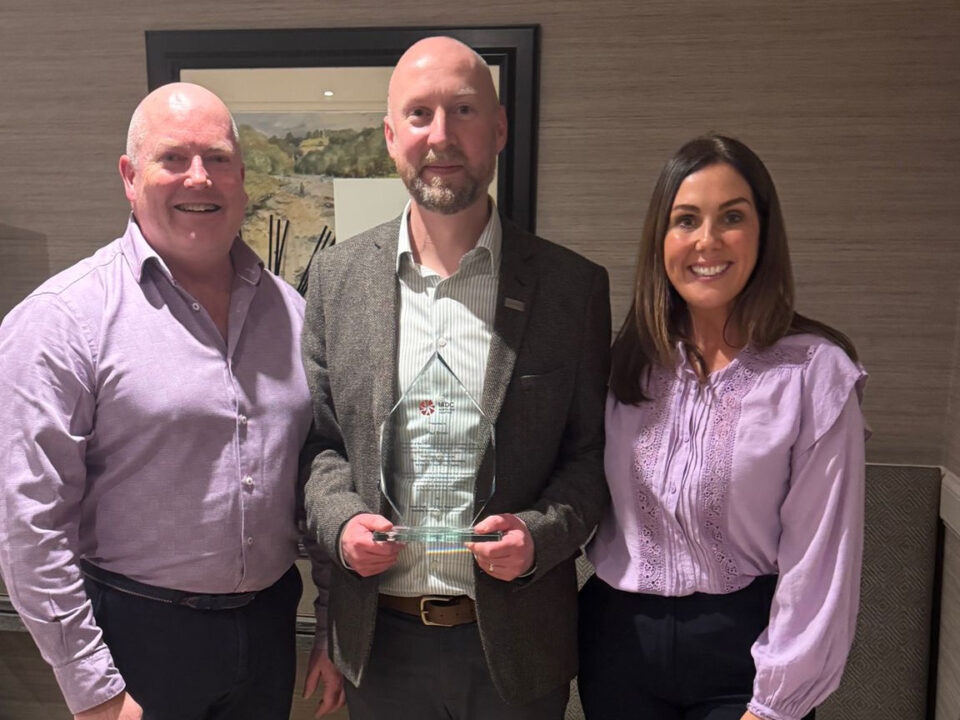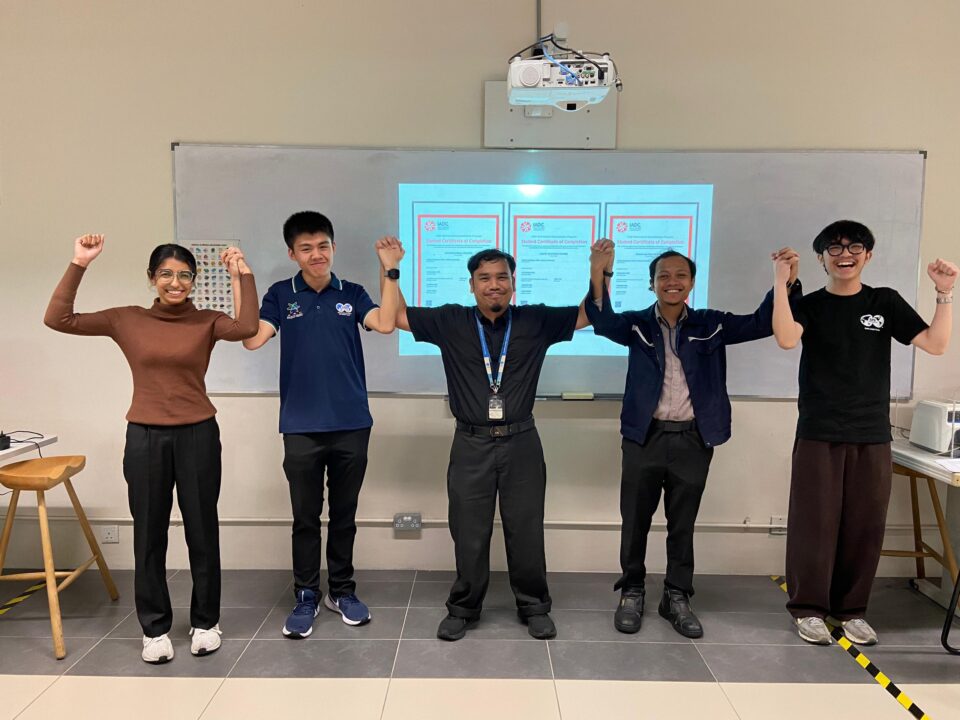
DRILLBITS
Monthly eNewsletter from the IADC
DrillBits – May 2020

DRILLBITS – May 2020
In This Edition
Recurring Items
Sign Up For the DRILLBITS Email Newsletter!
A Note on COVID-19
IADC continues to work to ensure Members have access to critical industry information related to the COVID-19 pandemic. The IADC website includes a page that consolidates global recommendations and guidance from regulators and other industry groups on COVID-19. As the global situation remains fluid, the page is continuously updated to provide the latest and most up-to-date information. The website also includes information pertaining to IADC’s accreditation programs and certificates, along with rescheduled IADC conferences and committee meetings. Information is also being shared daily on IADC’s social networks, including LinkedIn and Facebook and on DrillingContractor.org. The latest issue of the magazine can be found online at https://www.drillingcontractor.org/digital-reader-marapr-2020-55776.
Advocacy
IADC advocacy teams continue to monitor the worldwide pandemic, working alongside members to advocate for the essential nature of worldwide oil and gas drilling activities. Items of note:
- IMO Issues Recommendations Concerning Movement of Offshore Energy Sector Personnel The International Maritime Organization (IMO) recently released Circular Letter No.4204/Add.13, Recommendations for Governments and relevant national authorities on facilitating the movement of offshore energy sector personnel during the COVID-19 pandemic. IADC, along with other trades representing the global offshore energy prepared the recommendations in consultative status with IMO.The recommendations address the needs of workers in the offshore energy sector who face challenges similar to those of seafarers. It strongly encourages governments to recognize offshore energy sector personnel as “key workers” and to facilitate their movement while recognizing the need to manage risks posed by COVID-19. The document also encourages Member States to exercise a practical and pragmatic approach with regard to issues like personnel changeovers, repairs, survey and certification for the offshore energy workforce.IMO has encouraged Member States and international organizations to make use of the document and circulate to other interested parties.The recommendations can be found on IADC’s COVID-19 focused webpage under the IMO heading.
- APPEA Guidelines for Worker Movement IADC and our members worked closely with APPEA on a guide for movement of critical oil and gas personnel (and families) into and out of Western Australia. The guide provides information on processes to follow for interstate workers and marine crews moving in and out of State. More information about APPEA’s response to the pandemic can be found on the APPEA website.
- Helicopter Transfer Flowchart IADC and our members worked alongside Oil and Gas UK to develop a COVID-19 Helicopter Transfer Flowchart to determine movement of offshore personnel and considerations related to transporting workers amidst the pandemic. The flow chart can be found on the OGUK website
- Essential Worker Designation for Oil and Gas Personnel – IADC joined together with PESA, API and IAGC on a letter to petition U.S. Secretary of State, Mike Pompeo, to include the oil and gas sector in its list of essential workers. The letter, issued on 24 March, argued this industry needs to do the work to protect critical energy infrastructure during the pandemic. IADC and PESA joined together on a separate letter urging the U.S. Cybersecurity and Infrastructure Security Agency (CISA) to ensure that energy employees have the ability to maintain critical services during the national crisis.
On 28 March, the U.S. Department of Homeland Security amended their guidance, to include the oil and gas industry. The updated guidance can be found here: :https://www.cisa.gov/publication/guidance-essential-critical-infrastructure-workforce
Overview of US Legislative Resources for the Drilling Industry – Audio Interview
The oil and gas industry is reeling following the outbreak of COVID-19 and a price conflict between Russia and Saudi Arabia, both of which have combined to send oil prices tumbling and drillers scrambling to pick up the pieces. In an interview with Drilling Contractor magazine, IADC VP of Policy and Government Affairs, Liz Craddock, discussed legislation passed by the U.S. Federal government designed to help businesses say afloat during the pandemic. In the interview, Mrs. Craddock outlines the legislation and how drillers in particular can take advantage of it and also discusses why it is important for the government to help the oil and gas industry manage through one of the more challenging economic environments in years.
The full audio interview with Mrs. Craddock can be found on DrillingContractor.org.
Washington D.C. Update
Stimulus Legislative Recap
In March, Congress passed Phases 1-3 of COVID-19 stimulus funding. This was comprised of an initial $8.3b Phase 1 bill for government agencies handling the response, a roughly $100b Phase 2 bill supplementing unemployment and other programs, and a $2t Phase 3 bill (The CARES Act) providing cash payments to individuals and an assortment of payroll and small business loan programs. All of these bills have been passed by voice votes due to Congress being hunkered down outside of Washington, but this could change shortly. Despite House Democrats aborting the House’s planned return next week due to fears of contracting the virus, Senate Republicans are pushing to bring the Senate back in session. This could complicate additional stimulus legislation as lawmakers, at least in the Senate, would have to answer for their recorded votes. This could lead to a potentially sticky situation for Republicans with constituencies that are skeptical of seemingly unlimited government bailouts at the expense of future fiscal years, and Democrats with constituencies that are disdainful of what they see as billions in corporate bailouts at the expense of more immediate direct payments to individuals and families.
Stimulus Phase 3.5
Passed the third week of April, Phase 3.5 was aimed to bolster the ailing PPP fund. It included $100b for hospitals and health systems, as well as a litany of other funding provisions:
- Expanded the authorization level for the Paycheck Protection Program from $349 billion to $659 billion.
- Increased the appropriation level for the Paycheck Protection Program from $349 billion to $670.335 billion.
- Increased the authorization level for the Emergency Economic Injury Disaster (EIDL) Grantsfrom $10 billion to $20 billion.
- Allowed agricultural enterprises as defined by section 18(b) of the Small Business Act (15 U.S.C.647(b)) with not more than 500 employees to receive EIDL grants and loans.
- Created a set-aside for Insured Depository Institutions, Credit Unions, and Community Financial Institutions for the PPP. Community Financial Institutions are defined as minority depository institutions, certified development companies, microloan intermediaries, and state or federal credit unions.
- Provided additional funding for the PPP through:
- $30 billion for loans made by insured depository institutions and credit unions that have assets between $10 billion and $50 billion
- $30 billion for loans made by community financial institutions, small insured depository institutions, and credit unions with assets less than $10 billion.
Phase 4 (TBD)
Congressional Democrats are already calling for a Phase 4 of bailouts amid concerns that original stimulus payments and loan programs were simply not enough to fill the void. While Republicans have commented they would like a breather from passing any more funding until the full effects of previous efforts can be analyzed, both sides of the aisle are certainly interested in securing more money for their constituencies:
- Democratic sources revealed that Sen. Schumer told fellow Democratic Senators on a conference call last week that there will be a “Phase 4” bill
- Some of the top priorities Senate Democrats are pushing include funding for state and local governments, rental assistance, election integrity, the Postal Service, and others.
- House Speaker Nancy Pelosi commented this week that she wants more funding for testing and hospitals. Those demands at this point are rather uncontroversial and would likely be included in further stimulus packages.
IADC Chapters & Committees
Drilling Engineers Committee’s “Rig for the Future” Tech Forum to be held on 24 June
The IADC Drilling Engineers Committee (DEC) is moving forward with its 24 June Q2 Technology Forum, which will be held at Wild Well Control, 2202 Oil Center Ct, Houston, TX 77073. IADC is continuing to monitor the COVID-19 situation and will move the event online-only if necessary.
The Q2 Tech Forum will assume the theme of “Rig for the Future,” which had been scheduled for the DECs Q1 event in March but was canceled amid the coronavirus pandemic.
Over the years, the drilling industry has used the same methods, processes, and basic machine technology to drill oil and gas wells. Will this trend continue in the future, or is a new Rig for the Future required? What is a Rig for the Future – more of the same (evolutionary) or is it a step change (revolutionary)? What technology is required to achieve a Rig for the Future – more automation? What kind of automation? What is the cost vs. benefit of the Rig for the Future, and is it worth it? What role will rig- and office-based personnel play? Will this new technology keep people safer? Will the Rig for the Future be better for the environment and have a reduced carbon footprint? What could the Rig for the Future look like in 2030, and what are the main obstacles that must be overcome? The DEC event is designed to explore our progress and consider our future.
An agenda for the event will be posted soon. To attend, please register online
IADC Southeast Asia Chapter to Host Virtual Meeting on 13 May
The IADC Southeast Asia Chapter will host its second virtual meeting on 13 May at 2 p.m. KL time. The focus of the meeting will be on climate change and the impact on the drilling industry. The panel of presenters includes Yun Yun Teo, principal analyst (Rigs, Asia-Pacific) at IHS Markit Petrodata, who will disucss the impact of COVID-19 and the latest oil price crash on the offshore rig market. Martin Opdal, Principal with Rystad Energy Consulting Singapore will present on the current macros situation within the oil market and how supply and demand has been affected by the pandemic. He will explore how this translates into spending and how it affects various oil services segments.
To register for the virtual meeting, please click here
Industry News & Resources
RAPID-S53 BOP Reliability JIP Opens to Include Component Manufacturer Participants
The RAPID-S53 BOP Reliability JIP has established a new type of participant category, that of Equipment Component Manufacturer. The category is designed for the companies that make individual components such as SPM valves and regulators supplied to OEMs/System Integrators to build the complete BOP system.
Parker Hannifin Corporation is the first component manufacturer to join the JIP in the new category. Initial annual dues for component manufacturers as been set at $7500.There are currently 12 drilling contractors, 12 operators, and three OEM/System Integrators participating in the JIP, which has been collecting BOP performance data since 2015.
For more information about the JIP, and to join, please contact Steve Kropla at steve.kropla@iadc.org.
Updated Global Sustainability Reporting Guidance Available
IPIECA, API, and IOGP recently released the fourth edition of the Sustainability Reporting Guidance for the Oil and Gas industry. The document is intended to provide oil and gas companies with a clear framework to demonstrate their important role in the energy transition by reporting on how they manage climate and sustainability impacts.
Updates to the guidance have been applied to six areas of focus, including: Reporting process; Governance and business ethics; Climate change and energy; Environment; Safety, health and security; and Social impacts. Notably, modifications were made to improve reporting of performance indicators related to climate change and energy.
The updated guidance represents the work of more than 80 representatives from 28 oil and gas companies from six continents and a panel comprised of experts from NGOs, investors and investor groups, banks and expert consultants.
More information can be found at IPIECA’s website.
OSHA Issues Memorandum on Employer Good Faith Efforts During COVID-19 Pandemic
The Occupational Safety and Health Administration has issued a Memorandum on Discretion in Enforcement when Considering an Employer’s Good Faith Efforts During the Coronavirus Disease 2019 (COVID-19) Pandemic, which will take effect immediately and remain in effect until further notice. In light of the COVID-19 pandemic, OSHA understands that some employers may face difficulties complying with OSHA standards due to the ongoing health emergency. Widespread business closures, restrictions on travel, limitations on group sizes, facility visitor prohibitions, and stay-at-home or shelter-in-place requirements may limit the availability of employees, consultants, or contractors who normally provide training, auditing, equipment inspections, testing, and other essential safety and industrial hygiene services. During the course of an inspection, OSHA Area Offices will assess an employer’s efforts to comply with standards that require annual or recurring audits, reviews, training or assessments and evaluate whether the employer has made good faith efforts to comply with applicable OSHA standards and, in situations where compliance was not possible, to ensure that employees were not exposed to hazards from tasks, processes or equipment for which they were not prepared or trained. The guidance is intended to be time-limited to the current health crisis.
IADC Chairman’s Anniversary Award Program Accepting Submissions
The Chairman’s Anniversary Award was developed to recognize field-based individuals who have made a direct impact on improved performance for their company, either through a project or personal effort. The Award is given every five years as part of IADC’s anniversary celebrations.
Award winners will demonstrate how their innovative project directly improved performance in the field in one of the following ways:
- Eliminating injuries
- Enhancing process safety
- Reducing NPT
- Improving equipment reliability
- Increasing efficiency
***IADC has extended the submission deadline. Those who wish to nominate a colleague for the Chairman’s Anniversary Award can do so now through 31 August. A selected group of IADC staff and industry veterans will judge all submissions the week of 14 September and a winner will be recognized during IADC’s Annual General Meeting in November.
For more information and to submit a nomination, please visit the IADC Website.
IADC Lexicon Featured Term for May 2020
The IADC Lexicon (IADCLexicon.org) is a compendium of upstream-related terms, which, unlike conventional glossaries, are official definitions drawn from legislation, regulation and regulatory guidance, standards (global, national and regional), and IADC guidelines. Terms often have multiple definitions from different sources.
This month’s Featured Term is:
“Commanded Closure” ( Source: IAPI SPEC 17F, Specification for Subsea Production Control Systems, Second Edition, December 2006 (Reaffirmed April 2011):
Closure of the underwater safety valve and possibly other valves depending on the control system design. NOTE Such commands can originate manually, automatically or as part of an ESD.
(click the link to read the full definition on the IADC Lexicon.)
Accreditation Updates
Crane-Rigger
- Ropetech Engineering Services Limited, Warri Nigeria
WellSharp
- MTC Training & Simulation, Brazil;
- Baku Drilling School, Azerbaijan;
- University of North Dakota Department of Petroleum Engineering, Grand Forks North Dakota
DIT
- Petrotalent Institute of Petroleum, Pune, India
- CPS Canadian Petroleum Services, Dubai, United Arab Emirates;
- Joshrob Integrated Services Limited, Port Harcourt, Rivers, Nigeria;
- Aberdeen Drilling School Limited, Aberdeen, United Kingdom;
- GET Consultants DMCC, Dubai, United Arab Emirates
New IADC Members
IADC welcomes 14 new members:
- ACCELERATED COMPACT ENERGY SOLUTIONS LIMITED, LAGOS, LAGOS STATE, NIGERIA;
- BREDA ENERGIA, MILAN, ITALY;
- CONNTRAK CATERING SERVICES LLC, ZAYED CITY, ABU DHABI, UNITED ARAB EMIRATES;
- DIPENZE INTEGRATED NIGERIA LIMITED, BENIN, EDO, NIGERIA;
- EKWILOG TECHNICAL SERVICES, AJAH, LAGOS, NIGERIA;
- FALCON RIGS COLOMBIA S.A.S., BUCARAMANGA, SANTANDER, COLOMBIA;
- FUDA ENERGY TECHNOLOGIES DMCC, DUBAI, UNITED ARAB EMIRATES;
- FUTURE LEADERS FOR PETROLEUM TRAINING, NASR CITY, CAIRO, EGYPT;
- JACHE LIFTING SERVICES LTD, PORT HARCOURT, RIVERS, NIGERIA;
- KDI ENGINEERING SERVICES, PORT HARCOURT, RIVERS, NIGERIA;
- RIGUP, AUSTIN, TEXAS, USA;
- SAUDI GLOBAL INSTITUTE, DHAHRAN, EASTERN PROVINCE, SAUDI ARABIA;
- TRUST DRILLING & WORKOVER COMPANY, NEW MAADI, CAIRO, EGYPT;
- ZHONGYUAN WELL CONTROL TRAINING CENTER, PUYANG, HENAN, CHINA
DRILLBITS Volume 30, Number 4
Julie Robertson, Chairman • Jason McFarland, President • Amy Rose, Editor
All listed phone extensions are for IADC’s Houston headquarters,
+1/713-292-1945. Fax +1/713-292-1946.
Send comments/questions to Amy Rose at amy.rose@iadc.org.
To subscribe to Drill Bits, go to www.iadc.org/drillbits.
To change/cancel a Drill Bits subscription, send an e-mail message to
IADC Director – Membership Sharon Thorpe at sharon.thorpe@iadc.org.




